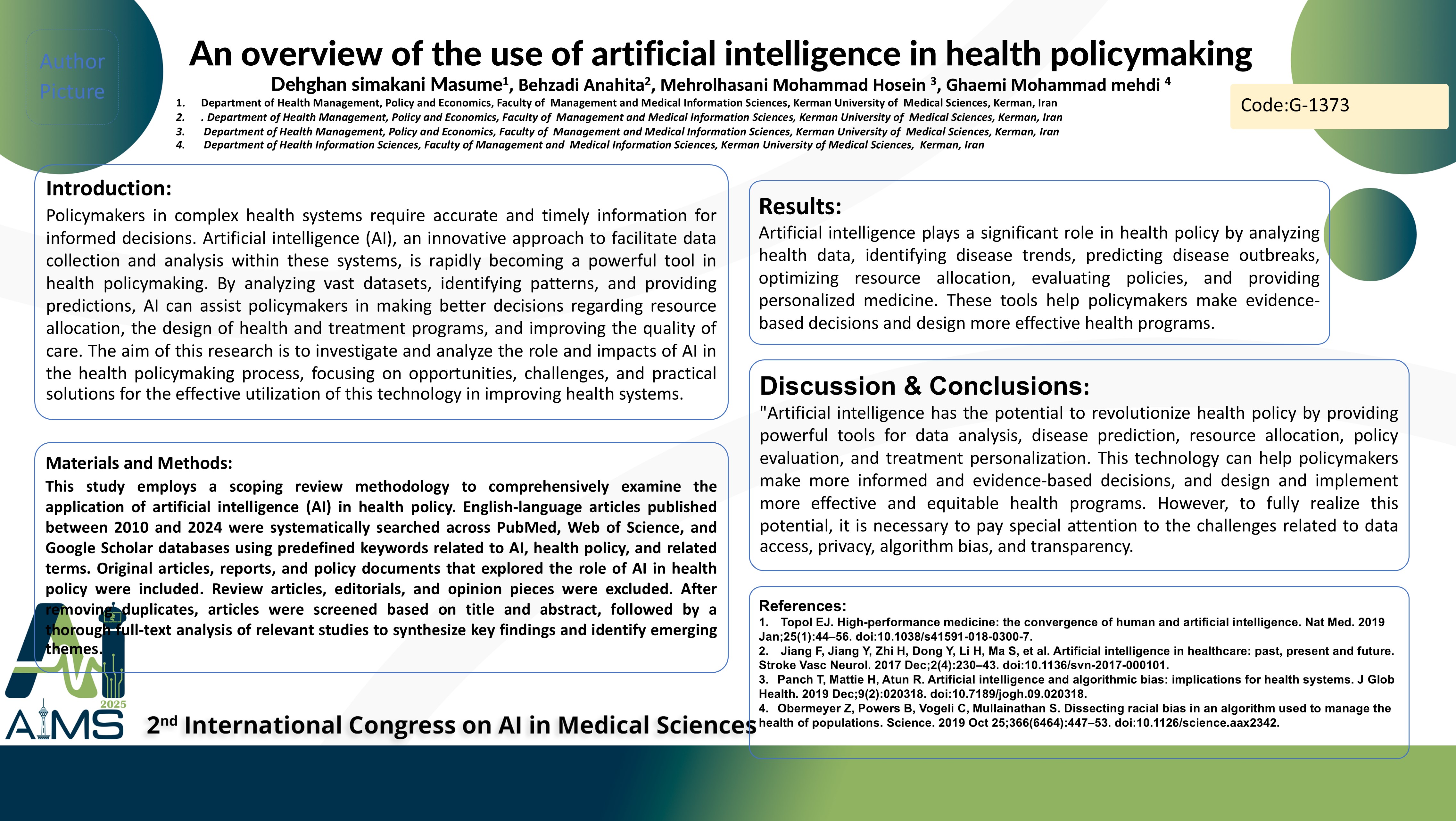An overview of the use of artificial intelligence in health policymaking
Code: G-1373
Authors: Masume Dehghan Simakani * ℗, Anahita Behzadi, Mohammad Hossein Mehrolhasani, Mohammad Mehdi Ghaemi
Schedule: Not Scheduled!
Tag: Health Policy, Law & Management in AI
Download: Download Poster
Abstract:
Abstract
Background and Aims: Policymakers in complex health systems require accurate and timely information for informed decisions. Artificial intelligence (AI), an innovative approach to facilitate data collection and analysis within these systems, is rapidly becoming a powerful tool in health policymaking. By analyzing vast datasets, identifying patterns, and providing predictions, AI can assist policymakers in making better decisions regarding resource allocation, the design of health and treatment programs, and improving the quality of care. The aim of this research is to investigate and analyze the role and impacts of AI in the health policymaking process, focusing on opportunities, challenges, and practical solutions for the effective utilization of this technology in improving health systems. Method: This study employs a scoping review methodology to comprehensively examine the application of artificial intelligence (AI) in health policy. English-language articles published between 2010 and 2024 were systematically searched across PubMed, Web of Science, and Google Scholar databases using predefined keywords related to AI, health policy, and related terms. Original articles, reports, and policy documents that explored the role of AI in health policy were included. Review articles, editorials, and opinion pieces were excluded. After removing duplicates, articles were screened based on title and abstract, followed by a thorough full-text analysis of relevant studies to synthesize key findings and identify emerging themes. Result: Artificial intelligence plays a significant role in health policy by analyzing health data, identifying disease trends, predicting disease outbreaks, optimizing resource allocation, evaluating policies, and providing personalized medicine. These tools help policymakers make evidence-based decisions and design more effective health programs. Conclusion: "Artificial intelligence has the potential to revolutionize health policy by providing powerful tools for data analysis, disease prediction, resource allocation, policy evaluation, and treatment personalization. This technology can help policymakers make more informed and evidence-based decisions, and design and implement more effective and equitable health programs. However, to fully realize this potential, it is necessary to pay special attention to the challenges related to data access, privacy, algorithm bias, and transparency.
Keywords
Artificial Intelligence, AI, Health Policy
